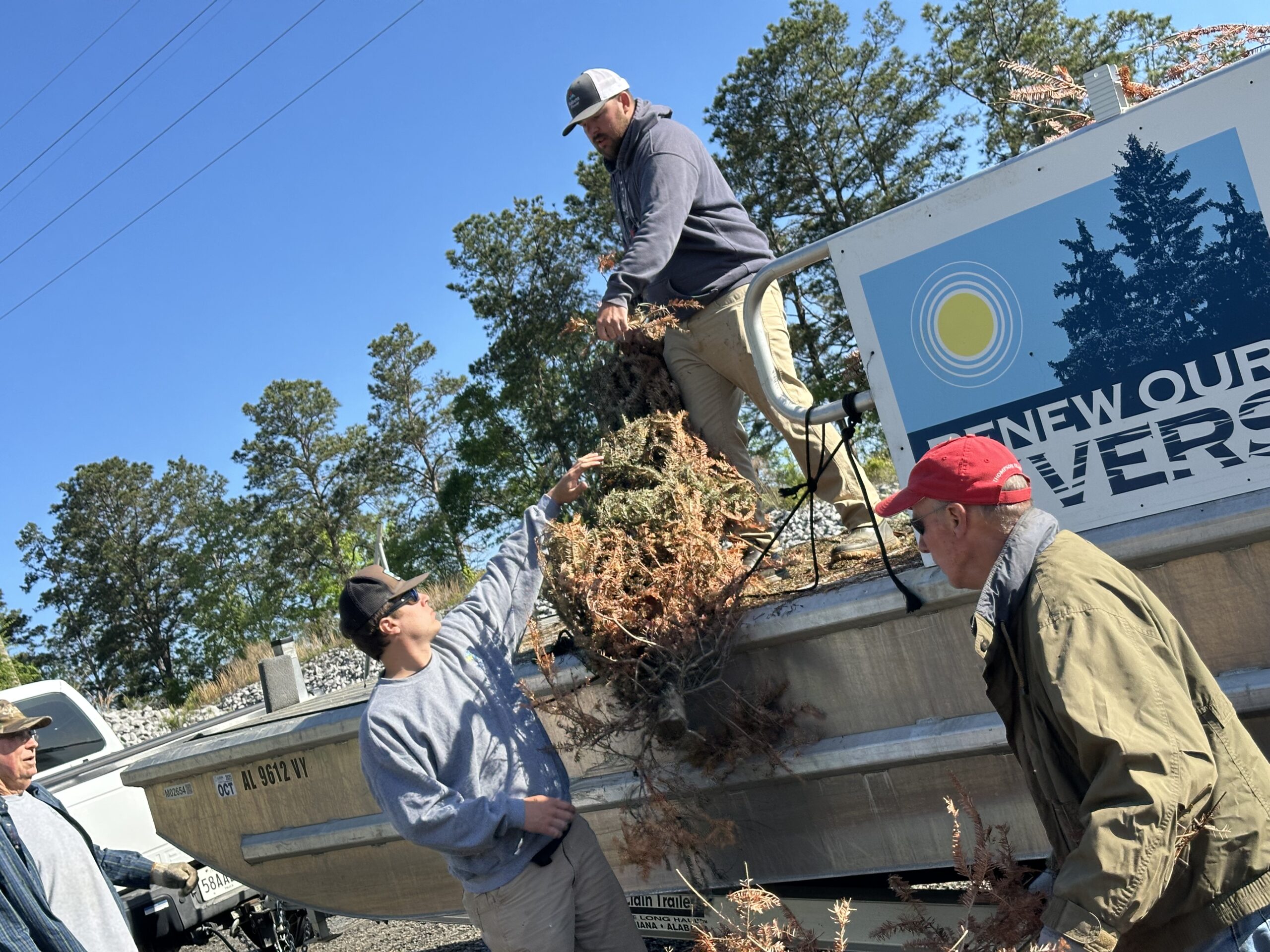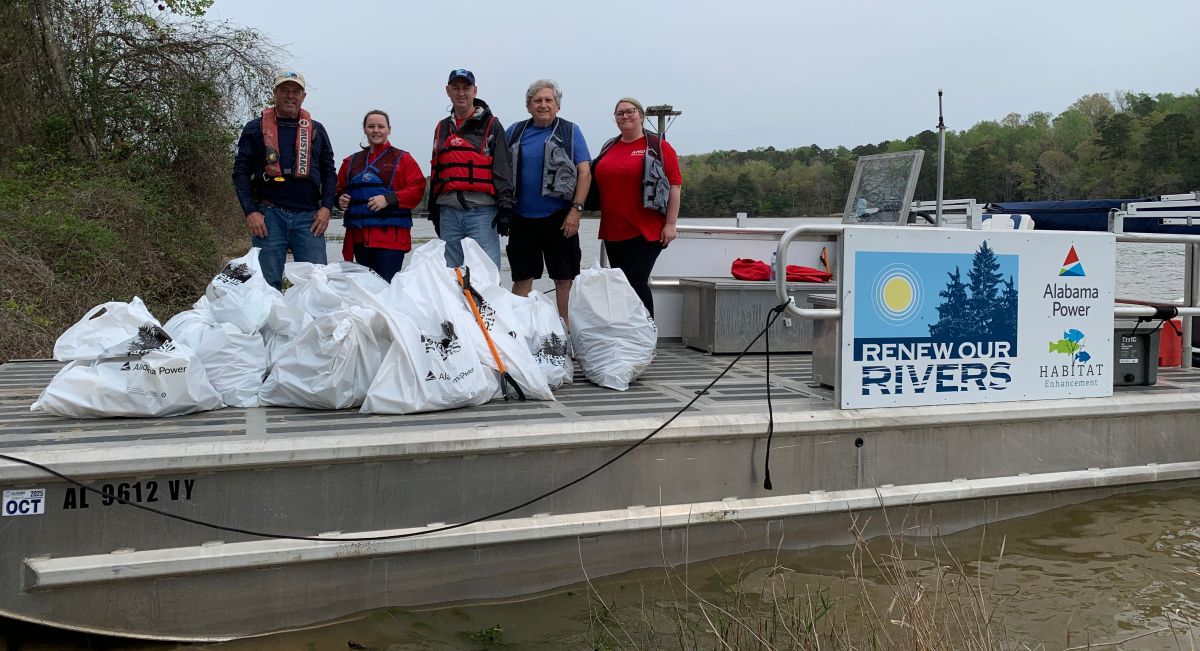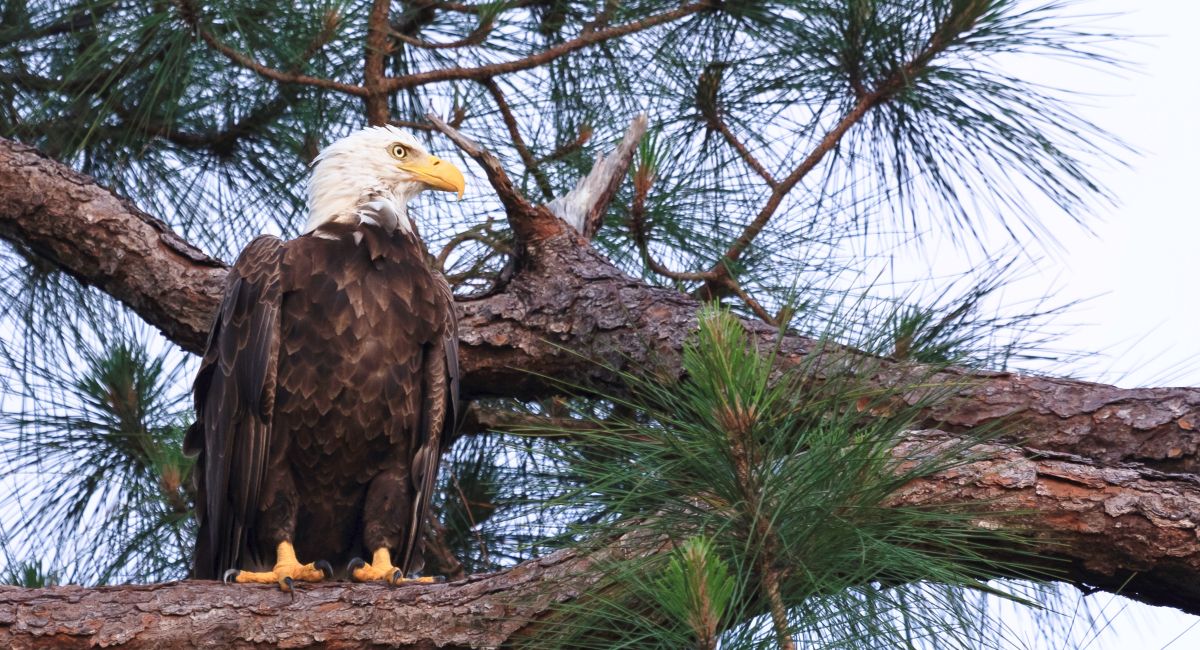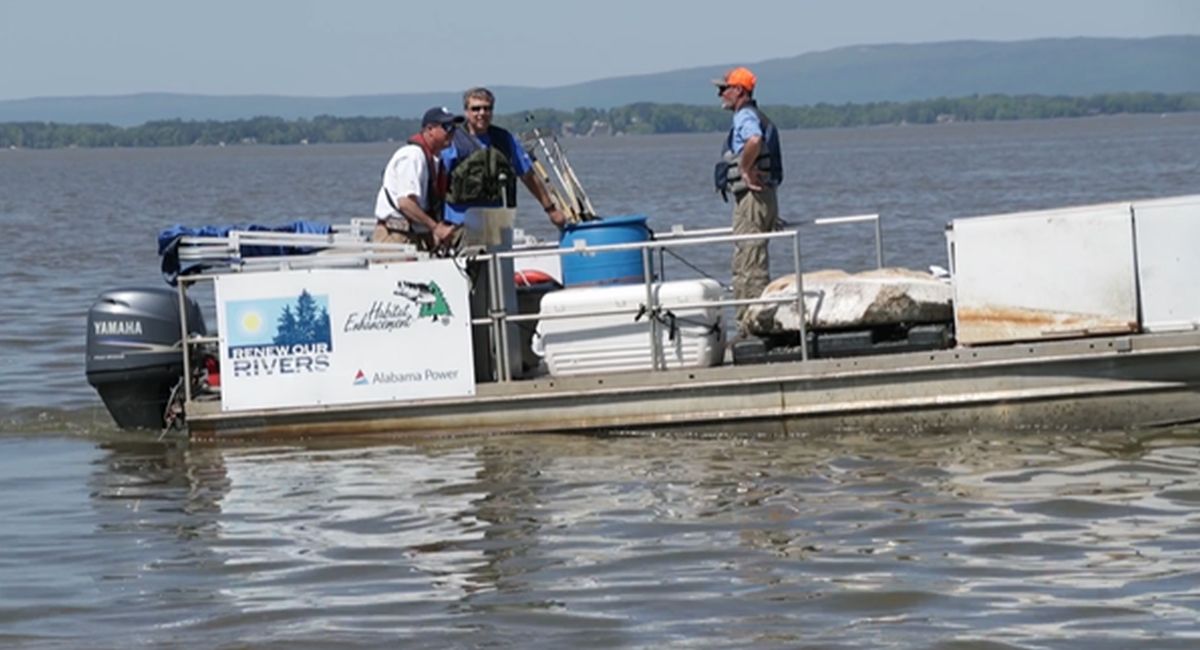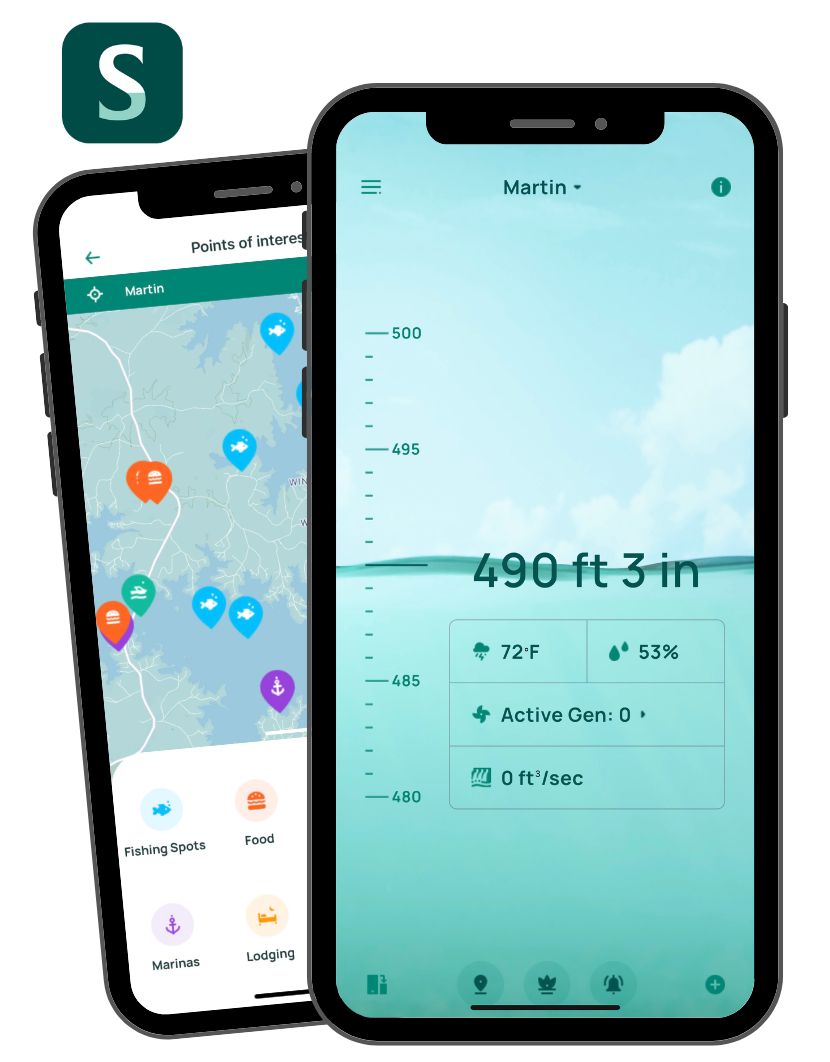On the eve of this Memorial Day, meet Louis Hanks.
Hanks is a special Alabamian who has lived a special life. The Winfield resident has traveled far and wide, served his country in the South Pacific during World War II, ran a successful business and became integral to his community. It’s his personal connections, though – family and being home in Alabama – that Hanks has always treasured most.
Hanks’ story begins more than 90 years ago in what is now Hoover, when it was rural land outside Birmingham. This is where he grew up exploring in the woods, playing in the creeks and helping tend to his family’s land. He married his high-school sweetheart, Margaret, 72 years ago this year, and mere days later, he shipped out to defend our country in World War II.

“I will never forget, that is where I was on D-Day,” Hanks said at his home in Winfield. “All our plans changed, and we went to Camp Shelby, Mississippi.” Shortly after, Hanks headed cross-country by train to board a troop transport that took him to New Guinea in the South Pacific.
From there, he followed the war from island to island, outpost to outpost – ultimately ending up in the Philippines where he was part of the forces preparing to invade Japan. Instead, the dropping of two atomic bombs forced Japan to surrender, and Hanks entered Japan with the mission of destroying remaining war materials.
“By spring of 1946, we had made it all the way to Tokyo,” he remembers. “All along the way, we were tearing things up and building water purification plants for civilians.”
By April 1946, Hanks was up for a discharge and began the journey home.
“I was discharged at Camp Shelby,” he says. “I soon began to make my way home and lost contact with the guys I served with.”
He turned his focus to reconnecting with Margaret, building a business and raising a family. That would fulfill Hanks’ life for 60 years.
That Alabama Connection
Then one day he was flipping through Alabama Power’s Shorelines magazine, which Hanks gets through the mail because he keeps a cottage on Smith Lake.
“I saw this face in Shorelines magazine,” Hanks remembers. “Said that’s Henry’s son. He looks a lot like him.”
“Henry” was Henry Phifer, a veteran soldier who, although he was older than Hanks, had made much the same journey many years ago.
Phifer was just another soldier, he was another soldier from Alabama who ended up in the same company as Hanks and the two traveled the South Pacific serving together. They and several others from far and wide formed a tight pack of guys who did everything together.
“I just always called him Phifer,” Hanks recalls. “The Yankees would kid us about the food we liked and some of things we said. He was a good guy. We had that Alabama connection.”
Phifer and Hanks were discharged at the same time and made their way home to live separate lives in Alabama.
They lost touch until the younger Phifer caught Hanks’ eye in Shorelines that day.
So, Hanks set about trying to track down his old friend “Phifer.”
Phifer was an employee of Alabama Power and retired with 44 years of service. His son, Gene Phifer, was also an Alabama Power employee who recently retired from the company. Gene started the Renew our Rivers program at Plant Gadsden in 2000. The program has expanded statewide and into neighboring states, and is credited with removing more than 13.5 million pounds of trash from area waterways.
 “I called the power company,” Hanks says. “Hesitant at first, they connected me with them once they heard my story.”
“I called the power company,” Hanks says. “Hesitant at first, they connected me with them once they heard my story.”
When Hanks contacted the Phifer family, he learned that his old friend was in the hospital. Hanks and his wife made the 140-mile journey from Winfield to Gadsden for a visit by his friend’s bedside. They talked for hours about their service, their families and life.
“It was a great visit. I was really happy we could see each other again after so many years. He really was a great guy.”
Sadly, Henry Phifer passed away a few weeks later.
“Henry’s son called me shortly after he passed,” recalls Hanks. “He told me how much our visit had meant. I am glad for both of us we could see one another again.”
Rather than recreation, it’s recollection that will mark Memorial Day weekends for many veterans — including the ever-decreasing number of “the Greatest Generation” who served during World War II like Louis Hanks.
On this Memorial Day holiday, it’s important remember those men and women who served — appreciating those like Hanks who are still with us and honoring those lost to war and time, like Henry Phifer.





